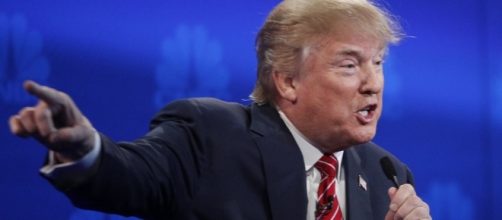President Donald Trump, who told the nation's governors at the Annual Governors' Ball that they have "an easy job," signed a bill on Tuesday that makes it much easier for mentally ill people to purchase guns. The bill, which was signed by the President in fulfillment of his campaign promise to the NRA, rescinded an Obama Administration requirement that the Social Security Administration forward the names of mentally ill people to the National Instant Criminal Background Check System, which suffices as the FBI database. The database serves as the basis for deciding whether or not people have the mental stability to purchase guns.
The Obama Administration enacted the requirement in an effort to limit access to guns by mentally ill people.
Why the Brady Bill was enacted
The Brady Bill was enacted in 1993 in response to the shooting and attempted assassination of President Ronald Reagan on March 31, 1981. President Reagan was shot in the chest near the heart and survived; but Jim Brady, the President's press secretary, was shot in the head and almost died.
For the next twelve years, Jim Brady and his wife Sarah fought for gun control legislation at the White House and in Congress. At first, Reagan was opposed to The Brady Bill but changed his mind after leaving the White House. Reagan then joined the Bradys in lobbying President George H.W.
Bush to support The Brady Bill, but to no avail.
The Brady Bill finally was enacted in 1993, the year that Bill Clinton took office. Among other things, the bill severely limited access to weapons by mentally ill people, or people who had a history of having been treated for mental illness.
The bill that Trump signed today, amidst very little media coverage, undid nearly all the progress that was made by the Bradys during their twelve-year advocacy of the Brady Bill. John Hinckley, the man shot both Reagan and Brady, was mentally ill and was committed to a mental institution for years. Hinckley was released in 2016 and now is free to roam the streets.
Trump signs two bills for women
President Trump, who was attacked over the weekend by Former President George W.
Bush for his assaults on the media and for banning several media outlets from attending White House news briefings, also signed two bills enhancing the mobilization of women in the sciences. The Promoting Women in Entrepreneurship Act enables the National Science Foundation to utilize entrepreneurial programs for the recruitment of women in science. The Inspiring the Next Space Pioneers, Innovators, Researchers and Explorers Women Act, mandates that NASA encourages women to explore careers in high-tech fields, including engineering, technology, aerospace and math.
Trump signed the bill in response to his daughter Ivanka's advocacy. On Facebook, Ivanka stated that "Closing the gender gap in STEM fields is essential to both innovation and workforce development,"(USA Today, 2/28/17).

